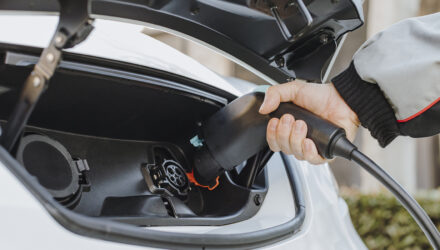Sewells Research and Insight can today reveal the immediate impact “DieselGate” is having on UK fleet decision makers. 95% of fleet decision makers believe the US investigation will extend to the UK, and 81% expect implications for the UK fleet market.
More than 300 fleet decision makers in the UK took part in the survey immediately following the news of the scandal on Monday. Results show the news of Volkswagen’s “defeat device” and resulting investigations could have dramatic implications for the market. More than two thirds (68%) of fleet decision makers believe cars in the UK will be affected and a large number (61%) will expect reimbursement for any resulting recalls in the UK.
Key amongst these issues is the trust fleet operators place in manufacturers. Responsible for 2.3 million car registrations in the UK*, fleets are amongst the most powerful and important buyers in the UK car market. They rely on manufacturer claims when making car purchase business decisions. Of the 2.3 million company cars in the UK, 81% currently run on diesel**.
Fleet decision makers place great importance on emissions figures, with 90% considering CO2 emissions important and 64% considering NOx emissions important when adding new cars to choice lists. Furthermore, 84% look to manufacturers to cut NOx emissions in their diesel cars.
More than half (54%) of respondents said they are less likely to trust claims made by manufacturers in future. The impact on the VW Group was even more fundamental, with 62% stating they are less likely to trust the manufacturer’s claims.
Of those currently operating VW Group models on their fleet, half (49%) claim they are potentially looking to review VW Group’s position on their fleet’s choice lists. Three in every four (73%) are looking for reassurance from the VW Group that vehicles on fleet are not affected. Two thirds of all respondents (67%) are now looking to all manufacturers that respective models on their fleet are not affected.
Simon Staplehurst, Head of Commercial Insight at Sewells Research, said; “Fleet operators have a right to ask serious questions of manufacturers when news like this emerges. It’s hard to exaggerate just how important fleets are to manufacturers and how important diesel is to this market. Fleet managers make critical business purchasing decisions on manufacturer claims when it comes to fleets and trust is the bedrock of these relationships and choices.”




















Andrew F.
( Thursday, October 1, 2015 - 16:43 )
Some questions to ponder whilst sitting in the clouds of steam generated by this debate:
a) Economical, diesel powered cars from Europe are taking a noticeable market share in the US, whose manufacturers have nothing comparable to offer. Is the furore in any way connected?
b) VW’s real-world vehicle fuel efficiency is no more out-of-kilter with the published statutory test figures than that of any other manufacturer. We all know that the two never reflect actual daily useage, but all use the figures as a guide. Do the new “revelations” change any of this?
c) VW still produce beautifully designed and built, reliable, economical, cars. Has that changed?
d) The top-selling US car for the last 10 years or more is the Ford F-150 pickup which will average 12-18mpg vs. 50 mpg for your average diesel VW. Which is the real polluter?
Howard
( Thursday, October 1, 2015 - 12:23 )
Are the government likely to review the company car tax payable by the company car driver if/when it is proven that their car has a higher CO2 emission than they are currently being taxed for? Furthermore, will they look to back date this tax to when the car was purchased etc?